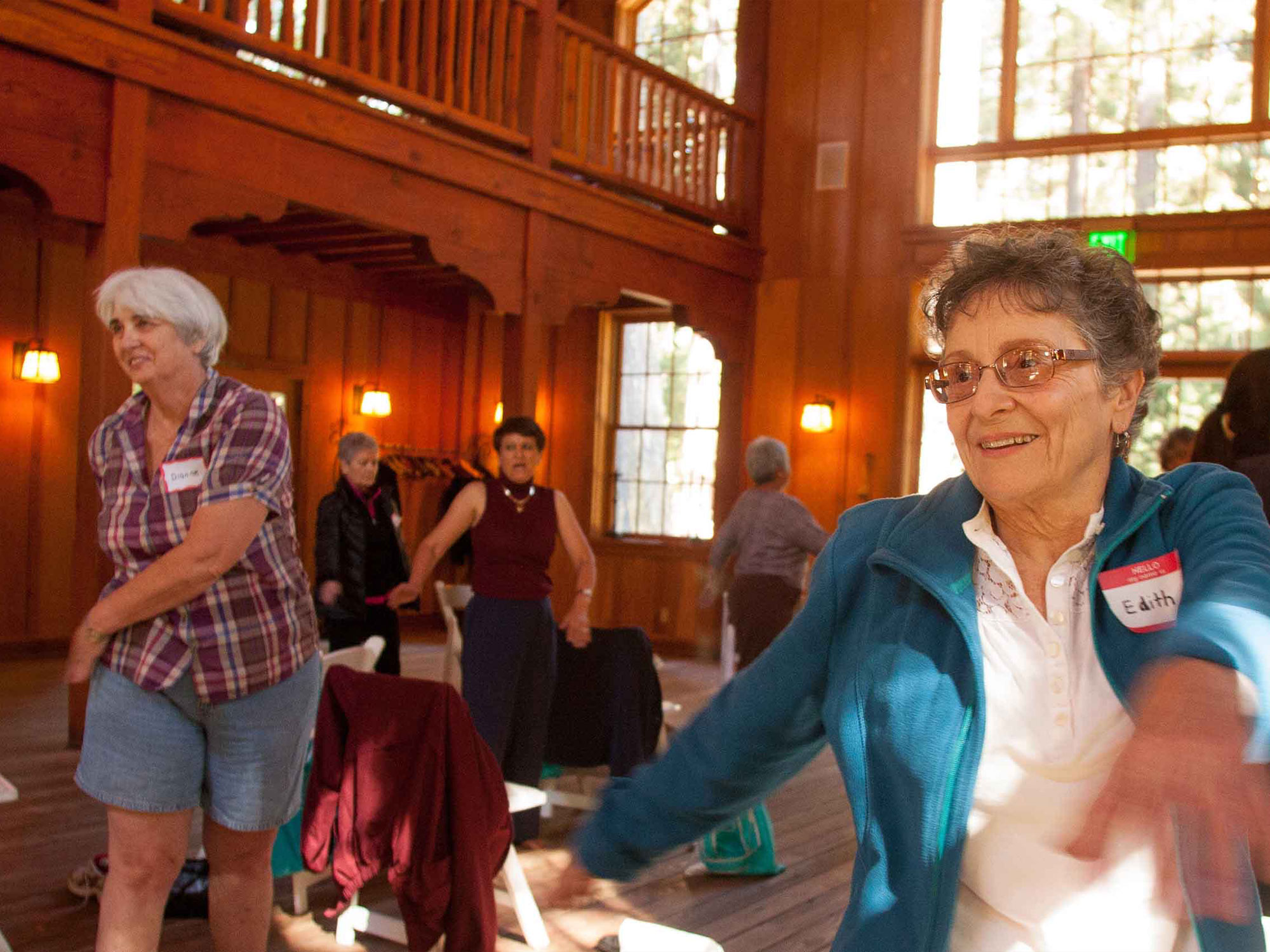As we age, it’s normal for our needs to change. For some seniors, performing activities of daily living, like bathing, dressing or getting out of bed, can become challenging. When this time comes, they may need more assistance and support.
While taking care of aging parents can be a rewarding and fulfilling experience, the daily demands of caregiving can feel overwhelming at times — especially if you have to juggle multiple roles as a family caregiver. This is normal, and you’re not alone. Our comprehensive guide is here to help you navigate this emotional journey while prioritizing your own well-being, so you can provide the best possible care for your loved one.
Introduction To Caring For Aging Parents
Caring for an aging parent is a compassionate commitment that can make a significant difference in your loved one’s life. However, it’s normal to feel overwhelmed, especially if you lack prior experience or training. This can negatively impact the quality of care you provide. To help avoid stress and burnout, consider sharing caregiver duties with other family members, or seeking support from professional caregivers. If your parent’s needs exceed what you can offer at home, it may be time to consider other options, like a senior living community, that can provide the comfort and safety they need.

Recognizing When It’s Time To Step In
Recognizing when your aging parent needs help can be challenging, as some changes may be gradual and not always obvious. Here are some key signs to look out for that may indicate your loved one needs assistance:
- Changes in physical abilities: If your parent is having difficulty performing everyday tasks, like walking, climbing stairs or getting in and out of bed, it may be an indication that they’re experiencing mobility challenges and are unable to perform activities of daily living (ADLs).
- Forgetfulness and confusion: Memory problems, forgetfulness or confusion about time, people or places can be early indicators of cognitive decline or dementia. These can be signs that your loved one may require additional support.
- Neglect of personal hygiene: If you notice your aging parent wearing unwashed clothes, forgetting to bathe regularly or neglecting their dental care or other self-care tasks, it may be a sign that they require help.
- Changes in mood or behavior: When caring for an aging parent, it’s important to look out for significant changes in mood, including increased irritability, depression or anxiety. These may indicate underlying issues that require attention and support.
- Difficulty managing household tasks: Noticeable changes in the cleanliness or organization of your parent’s home, such as piles of unopened mail, spoiled food in the fridge or dishes piling up in the sink, may suggest they are struggling to manage daily tasks independently.
- Social withdrawal: If a beloved senior in your life starts showing signs of social withdrawal, such as avoiding social activities, losing interest in hobbies or expressing feelings of loneliness and isolation, they may be indicating a need for companionship and connection.
- Unexplained injuries or accidents: Frequent falls, unexplained bruises or accidents around the home can indicate mobility issues or safety concerns that require attention and assistance.
- Changes in appetite or weight loss: Significant changes in appetite, unexplained weight loss or difficulty preparing meals may suggest that your loved one needs assistance with meal planning, grocery shopping or meal preparation. Image Source:

Practical Tips For Caring For A Loved One
Caring for an aging parent may come with its challenges, but with the right approach, you can provide the support and assistance they need. There are also several great organizations that can help. Here are some practical tips on how to care for aging parents:
- Establish open communication: Open and effective communication can help you understand your parent’s care needs better. Try to maintain honest communication with your loved one about their needs, preferences and concerns. It’s important to be patient and always respond with love and empathy.
- Seek professional guidance: Consult with health care professionals, like doctors, nurses or geriatric specialists, to ensure that your loved one’s medical needs are being met. They can provide valuable insights and recommendations for managing health conditions and improving their quality of life.
- Create a support network: Sometimes, the daily demands of caring for aging parents can be exhausting. Don’t hesitate to reach out to family members, friends or community resources for assistance. Building a support network can help ease the burden of caregiving and provide emotional support for both you and your loved one.
- Prioritize safety: Some seniors may be more prone to falls, which may lead to serious injury. Consider removing potential slip hazards, installing grab bars or handrails and providing assistive devices as needed.
- Encourage independence: While it’s important to provide assistance when needed, encourage your loved one to maintain as much independence as possible. You can support their autonomy by involving them in key decision-making processes and empowering them to take control of their own care whenever possible.
- Prioritize your well-being: Remember to prioritize your own physical, emotional and mental well-being. Set aside time for self-care activities, including exercise, relaxation and personal hobbies, and don’t hesitate to ask for assistance, take breaks or even treat yourself when needed.
- Stay organized: Keep track of important documents, medication schedules and appointments to help streamline your caregiving and ensure that your loved one’s needs are being met effectively. Consider using tools such as calendars, medication reminders or caregiving apps to stay organized and manage responsibilities more efficiently.
Image Credit: Family Caregiver Alliance
Support For You As A Caregiver
As a caretaker or caregiver, having access to resources and support can be invaluable in providing the best possible care for your loved one. Here are some key resources that can help:
- Online support groups and forums: Websites like Caregiver Action Network (CAN), Family Caregiver Alliance (FCA) and AgingCare offer useful articles and resources for caregivers.
- Educational workshops and webinars: Many organizations, like The Caregiver Foundation and Courage to Caregivers offer workshops, seminars and webinars on topics relevant to caregiving, including managing stress, navigating health care systems and understanding specific medical conditions.
- Caregiver apps: Apps like Dementia Guide Expert, PainScale and Medisafe can provide various useful tools to help you streamline your caregiver duties.

When Is It Time To Consider A Senior Living Community
Deciding when it’s time to consider a senior living community for a loved one is a significant and often emotional decision. While every situation is unique, there are several signs that may indicate it’s time to explore this option:
- Difficulty with daily tasks: If your loved one is struggling to manage activities of daily living independently, such as bathing, dressing, cooking or managing medications, a senior living community can provide the assistance and support they need to maintain a quality of life.
- Social isolation: Social isolation and loneliness can have detrimental effects on physical and mental health for seniors. If your aging parent is experiencing social isolation, it may be due to limited opportunities for socialization or interaction. Video calling devices can be a great way to combat loneliness. Additionally, a senior living community can offer a vibrant atmosphere, with opportunities to build new social connections.
- Caregiver burnout: As a family caregiver, it’s normal to feel stressed and exhausted sometimes. If you or other family caregivers are feeling overwhelmed, stressed or physically exhausted from providing care for your loved one, it may be time to consider transitioning them to a senior living community. Professional caregivers can provide the support and assistance they need.
- Declining health or cognitive function: Is your loved one’s health or cognitive function declining to the point where it’s challenging to manage their care needs at home? A senior living community with specialized memory care or skilled nursing services may be the best option to ensure they receive the appropriate level of care and support.
- Financial considerations: Evaluating the financial aspects of senior living is an important factor in the decision-making process. If the cost of in-home care services or modifications to the home exceeds senior living costs, it may be more financially feasible to consider this option.
Partnering With CorsoCare To Serve Seniors
CorsoCare, a preferred third-party provider of StoryPoint Group, offers seniors more than high-quality care services — seniors also gain a dedicated partner in their health journey.
Whether seniors need expert medical support at home, compassionate end-of-life care, or assistance with daily activities, CorsoCare provides personalized, compassionate care to enhance the quality of life at every stage.
Click here for additional resources and to learn more about CorsoCare.












